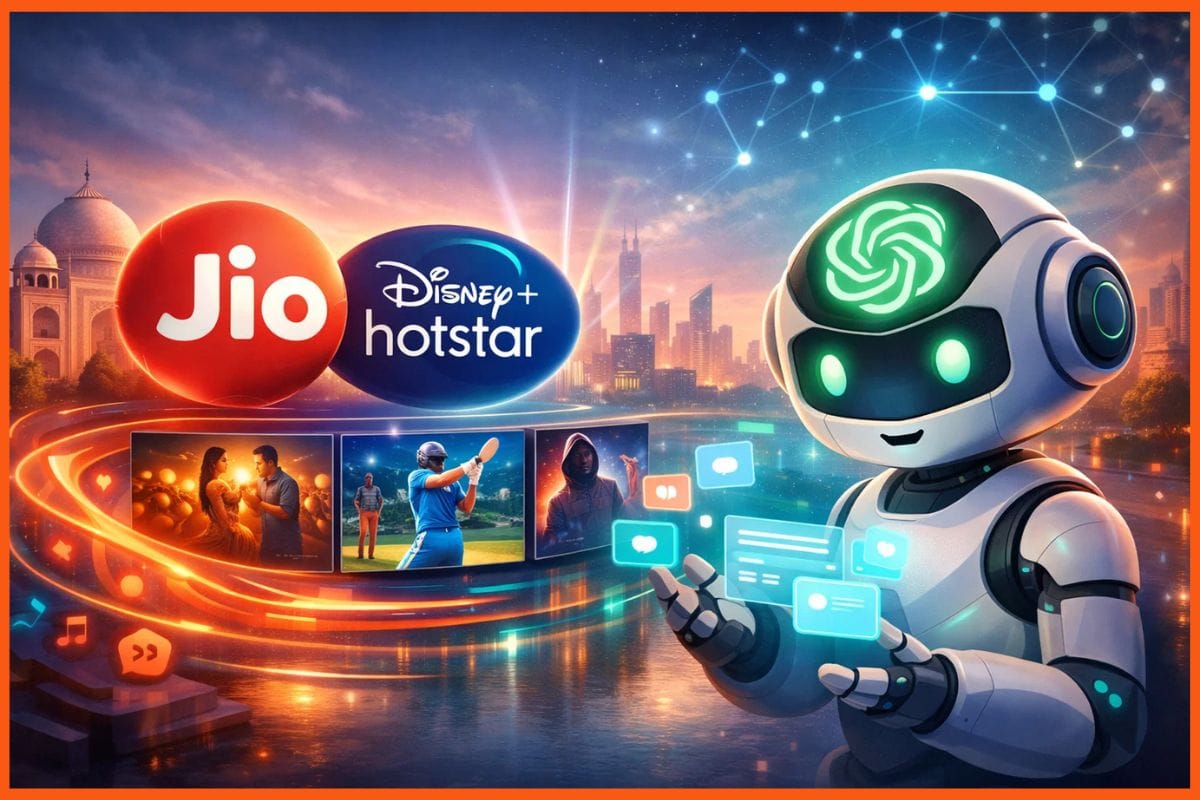Reviving the Art of Handcrafted Sarees: Ritu Oberoi, Founder of ForSarees, Shares the Need for High-Quality Sarees in Major Cities
Year End Stories
StartupTalky presents Recap'22. This is a series of interviews in which we conduct in-depth discussions with founders & industry leaders to understand their growth in 2022 and their predictions for the future.
The saree market in India is a large and diverse market, with a wide variety of sarees available to suit different occasions, styles, and budgets. The saree is a traditional garment that is worn by women in India, and it is considered to be an elegant and versatile piece of clothing.
In the financial year 2021, the size of the Indian market for sarees, blouses, and petticoats amounted to INR 288 billion, with an estimate of INR 616.67 billion for 2025.
Sarees are made from a wide variety of fabrics, including silk, cotton, georgette, chiffon, and more. There are many different types of sarees available in the Indian market, each with its own unique characteristics and designs. Some popular types of sarees include Banarasi sarees, Kanjeevaram sarees, Patola sarees, Paithani sarees, and more.
The saree market has been impacted by the COVID-19 pandemic. Sales have dropped significantly due to lockdowns and closures of physical stores; however, eCommerce platforms have seen a significant boost in saree sales.
For this Interview, we invited Ritu Oberoi, Founder of ForSarees, and we talked about the growth, challenges, insights, and future opportunities in the Traditional handloom/Saree industry.
StartupTalky: Ritu, what products does your company sell? What was the motivation or vision with which you started?
Ritu Oberoi: ForSarees is a platform selling diverse ethnic handcrafted and handloom sarees from different parts of India. I have always been in love with sarees since my college days, and it is a form of dress that crores of Indian women wear every single day.
However, I was surprised when I discovered that major metro cities needed more high-quality handcrafted sarees. Barring occasional exhibitions or special events, one didn’t see the authentic handloom sarees at most regular saree showrooms. I knew that ample talent and artisans regularly made such sarees, but they suffered due to the lack of market access. That motivated me to build ForSarees as a D2C brand for handmade sarees.
StartupTalky: Ritu if we talk about ForSarees in specific, what other products/features have been added in the past year? What is/are the USP/s of your products?
Ritu Oberoi: All sarees from ForSarees are 100% authentic handicraft pieces. I have traveled extensively across India to identify the right talent, and we have established clusters in several states to manufacture the sarees.
The biggest USP of ForSarees has been finding the right artisans to build a supply chain free of any middlemen. Like there is farm to table concept in agriculture, we have created a channel where handcrafted sarees from artisans are being directly offered to buyers in metro cities through our online platform. We are unique even in terms of quality, authenticity, and affordability of the sarees on the platform. Besides running the eCommerce portal, ForSarees is involved in various developmental projects and supports rural empowerment and gender inclusivity.
StarupTalky: How has the traditional handloom/saree industry changed in recent years, and how has your company adapted to these changes?
Ritu Oberoi: Sarees have been a perennial favorite among Indian women, and many of them wear sarees daily. However, the industry, especially the retail operators in metro cities, needs to improve in high-quality handmade sarees.
The talented artisans from rural areas don’t have adequate market access despite the demand for handcrafted sarees in the metros. That’s an area ForSarees
has managed to address this by building an online platform showcasing collections of sarees by weavers and handlooms from various states. Our digital platform works in tandem with rural artisans and enables customers to buy high-quality sarees directly. Thus, the sarees are authentic, superior in quality, and affordable. This is how we overcome market challenges and improve things for all stakeholders.

StartupTalky: Ritu, how do you stay up-to-date on the latest trends and developments in the traditional handloom/Saree industry?
Ritu Oberoi: ForSarees sells authentic, ethnic, handmade sarees. The artisans design the sarees as per the signature styles of each type and contemporary sensibilities.
StartupTalky: What key metrics do you track to check the company's growth and performance?
Ritu Oberoi: We track sales and customer talking points. Direct sales are never the direct impact. There are always things like people liking the product and not buying it, but they do recommend it to some more friends. Hence we look at overall feedback, and our feedback mechanism is good.
StartupTalky: What were the most significant challenges your company faced in the past year and how did you overcome them?
Ritu Oberoi: The biggest challenges we constantly faced were finding the right talent and building an ecosystem where the artisans could generate a steady monthly income by working with ForSarees. We have set up clusters of artists in different states where they make sarees and sell them online through our platform without any middlemen.
StartupTalky: Repeat purchase is one of the most important parameters on which most e-commerce brands are betting. How do you keep your customer engaged to stop churn?
Ritu Oberoi: The market we target is humongous, and women who wear ethnic sarees seek high-quality and authentic pieces. We scored highly on both parameters and keep contemporary styling and design trends in mind. Thus, every saree from ForSarees is exquisite and affordable hand-crafted brilliance. This has kept our customers happy; many have worn our sarees for years.
StartupTalky: What are the different strategies you use for marketing? Tell us about any growth hack which you pulled off.
Ritu Oberoi: We rely on multiple modes with a prime focus on content and influencer marketing. We have associated with several actors, celebrities, and social media influencers like Vidya Balan and Renuka Shahane, who have worn our sarees on different occasions. We promote the sarees by frequently sharing style guides and dress recommendations to make our audience aware of the easy access to authentic handmade sarees facilitated by ForSarees. It has helped us significantly.
StartupTalky: What are the important tools and software you use to run your business smoothly?
Ritu Oberoi: We use tools like Zoho for our CRM, Shiprocket for delivery, HubSpot for content marketing, and the Sumo app for business ideas and creatives for social media.
StartupTalky: What opportunities do you see for future growth in your industry in India and the world? What kind of difference in market behavior have you seen within states in India?
Ritu Oberoi: There is incredible demand for handmade sarees in Indian metro cities and through e-commerce portals like ForSarees, a change is being ushered in. In the past, conventional saree outlets offered very few affordable handmade saree options.
However, the D2C retail model is transforming the scenario, and we will see the segment proliferate in the times ahead.
StartupTalky: What lessons did your team learn in the past year and how will these inform your future plans and strategies?
Ritu Oberoi: As a team, we realized that one market channel and single sales channels aren’t enough; hence, we are building up parallel channels to create better brand value and revenue streams. In the future, we will experiment with many more things like new products, new modes of marketing and sales, etc.
StartupTalky: How do you plan to expand the Customers, SKUS, and team base in the future?
Ritu Oberoi: We plan to popularize traditional Indian crafts in urban and modern setups. ForSarees has already achieved significant success in this arena. We work with new artist clusters each year and are onboarding more handloom weavers from the existing clusters. This has helped us expand the variety and diversity of product categories. We will be introducing new product categories such as stoles, scarves, home décor items, and even utility gifts in the times to come.
StartupTalky: With so much hype around D2C brands spending on ads, What will be your growth strategy organic or inorganic? How to plan to work around SEO and content marketing?
Ritu Oberoi: We rely heavily on SEO, content, and influencer marketing initiatives. Successful women such as entrepreneurs, social media influencers, actors, and celebrities serve as role models and style icons. When women see personalities like Vidya Balan wear our sarees, they take note. This strategy has worked well for us, and we will continue to leverage it in the future.
StartupTalky: Ritu, one tip that you would like to share with other d2c founders?
Ritu Oberoi: Keep going, persistence is the key to success.
We thank Ritu Oberoi for spending her valuable time and sharing her learnings with all of us.
You can read other Recap'22 Interviews here.
Must have tools for startups - Recommended by StartupTalky
- Convert Visitors into Leads- SeizeLead
- Website Builder SquareSpace
- Run your business Smoothly Systeme.io
- Stock Images Shutterstock






